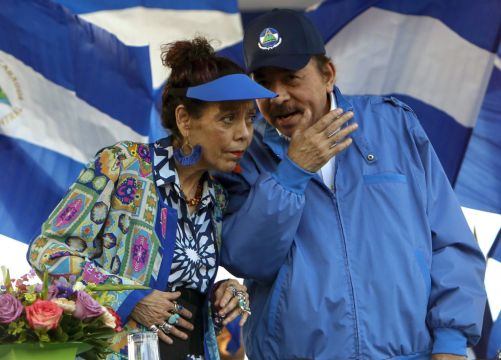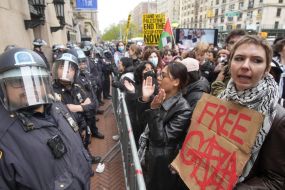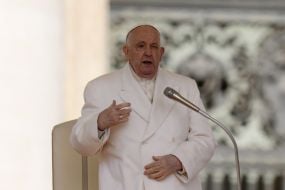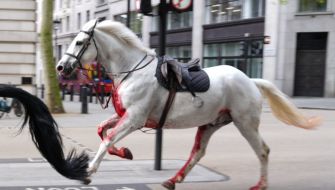The general assembly of the Organisation of American States voted to condemn Nicaragua’s November 7 presidential vote, saying the elections “were not free, fair or transparent, and lack democratic legitimacy”.
Twenty-five countries in the Americas voted in favour of the resolution, while seven, including Mexico, abstained.
Only Nicaragua voted against it.
Nicaraguan President Daniel Ortega won more than 75% of the votes in Sunday’s election, but the outcome was never in doubt after his government jailed seven of the leading potential opposition candidates.
Friday’s resolution instructs the OAS Permanent Council to draw up a report by November 30 in order to weigh “appropriate actions” to be taken.
US officials previously called the vote “undemocratic,” and the European Union said they “lacked legitimacy”.
The resolution could open the way to more sanctions on Nicaraguan officials, many of whom are already under US sanctions.

Alexa Zamora, a leader of the Nicaraguan opposition group Blue and White Unity, welcomed the resolution.
“The fact that the OAS recognises the regime as illegitimate gives us a powerful tool to demand the cutoff of outside financing for the dictator,” Ms Zamora said, suggesting that international development loans could be a target of such a cutoff.
Nicaragua’s OAS representative, Michael Rene Campbell, said that “the OAS does not have the authority to become our official vote counter … the OAS is not the arbiter or auditor of the elections”.
When the regional body voted last month to condemn repression and demand the release of political prisoners in Nicaragua, seven members abstained, including Guatemala, Mexico and Honduras, which neighbours Nicaragua.
Much the same group, including Bolivia, abstained this time.
In a switch, Argentina voted in favour of the resolution.
The Ortega administration has continued to close avenues for democratic participation with police banning public protests, electoral authorities banning some opposition political parties and potential candidates being arrested.
With all government institutions firmly within Mr Ortega’s grasp and the opposition exiled, jailed or in hiding, the 75-year-old leader eroded what hope remained the country could soon return to a democratic path.
US President Joe Biden has called Sunday’s vote “rigged” and says the US will use the tools at its disposal to hold the Nicaraguan government accountable.
“The Ortega and Murillo family now rule Nicaragua as autocrats, no different from the Somoza family that Mr Ortega and the Sandinistas fought four decades ago,” Mr Biden said.
The ruling Sandinista Front and its allies control the congress and all government institutions.

Mr Ortega first served as president from 1985 to 1990, after the 1979 revolution that ousted the Samoza dictatorship, before returning to power in 2007.
He recently declared his wife, Vice President Rosario Murillo, his “co-president”.
The opposition had called on Nicaraguans to stay home to protest.
In June, police arrested seven potential presidential challengers to Mr Ortega on charges that essentially amount to treason.
They remained in detention on election day.
Some two dozen other opposition leaders were also swept up ahead of the elections.
In a switch, Argentina voted in favour of the resolution.
But Mexico walked a thin line, with its OAS representative saying Mexico had expressed “concerns” to Nicaragua about the election but would support any OAS measure condemning the vote.
Luz Elena Banos, Mexico’s representative at the OAS, said Mexico “has expressed our concerns to the government of Nicaragua about the political process carried out on November 7, especially regarding freedom of expression and the right of citizens to participate in politics.”
But Ms Banos said Mexico would not vote for any measure ”aimed at intervention, isolating or imposing sanctions” on Nicaragua.







